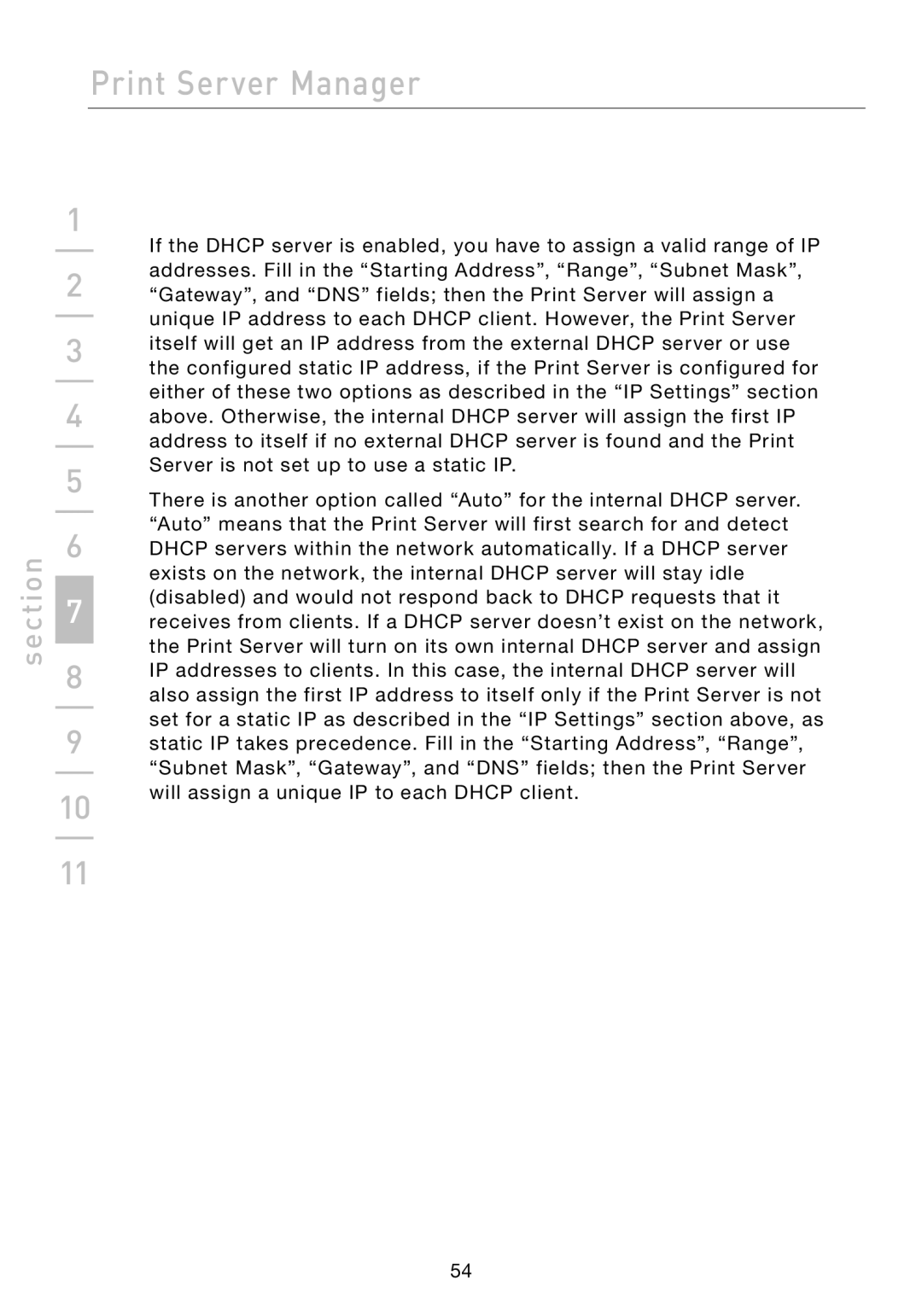
section
Print Server Manager
1
If the DHCP server is enabled, you have to assign a valid range of IP
2addresses. Fill in the “Starting Address”, “Range”, “Subnet Mask”, “Gateway”, and “DNS” fields; then the Print Server will assign a unique IP address to each DHCP client. However, the Print Server
3 | itself will get an IP address from the external DHCP server or use | |
| ||
| the configured static IP address, if the Print Server is configured for | |
4 | either of these two options as described in the “IP Settings” section | |
above. Otherwise, the internal DHCP server will assign the first IP | ||
| address to itself if no external DHCP server is found and the Print | |
5 | Server is not set up to use a static IP. | |
There is another option called “Auto” for the internal DHCP server. | ||
| ||
6 | “Auto” means that the Print Server will first search for and detect | |
DHCP servers within the network automatically. If a DHCP server |
exists on the network, the internal DHCP server will stay idle
7(disabled) and would not respond back to DHCP requests that it receives from clients. If a DHCP server doesn’t exist on the network, the Print Server will turn on its own internal DHCP server and assign
8IP addresses to clients. In this case, the internal DHCP server will also assign the first IP address to itself only if the Print Server is not
9 | set for a static IP as described in the “IP Settings” section above, as |
static IP takes precedence. Fill in the “Starting Address”, “Range”, |
| “Subnet Mask”, “Gateway”, and “DNS” fields; then the Print Server |
10 | will assign a unique IP to each DHCP client. |
| |
11 |
|
54
